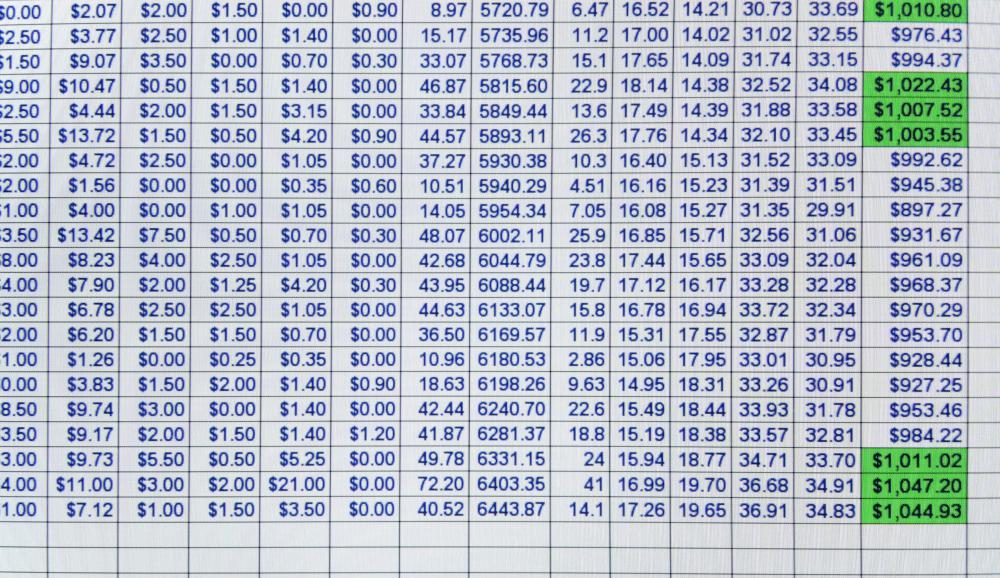At WiseGEEK, we're committed to delivering accurate, trustworthy information. Our expert-authored content is rigorously fact-checked and sourced from credible authorities. Discover how we uphold the highest standards in providing you with reliable knowledge.
How Do I Become a Business Data Analyst?
Business data analysts are professionals who are responsible for collecting information and reaching conclusions about data that help business managers to make informed decisions by which they can become more profitable and stable over the long term. It is common for data analysts to work full time for larger organizations that have multiple entities and business interests, though these professionals might also work for consulting firms where they are contracted by organizations to perform analysis. In most cases, managers use data analysts to get objective analyses of their organization's status financially and among competitors in a market, though they might also ask that data analysts provide potential solutions for how an organization can optimize its processes.
To become a business data analyst, it is necessary to get a formal academic background in a field such as statistics, mathematics, or computer engineering. Alternatively, candidates can pursue training in a field directly related to business, such as finance or management. An individual who would like to become a business data analyst should also get years upon years of experience in an industry in which he or she would like to work.

A person who wants to become a business data analyst needs to make sure that he or she gets a strong background in a field such as computer science or statistics. Professionals in this field must be able to mine complex data sets for patterns. While many people who become data analysts have backgrounds in business, it is essential that they learn the technical aspects of business and are able to use digital databases, generate charts and spreadsheets, and reach conclusions based on their observations. It is common for a person who wants to become a business data analyst to earn a graduate degree at some point in his or her career.

It is also important that a person who wants to become a business data analyst decides in which industry he or she would like to work relatively early in his or her career. The kinds of processes and software used in the healthcare industry, for example, are quite a bit different from those used in the finance sector. Likewise, a person who wants to become a business data analyst who specializes in information systems might need to concentrate largely on issues related to hardware and software, as opposed to a market analyst who might study statistics regarding spending habits among a business's target demographics.
AS FEATURED ON:
AS FEATURED ON:














Discussion Comments
@David09 - I worked for a manufacturing company once in the business data analyst role. I can tell you for certain I had no statistical background.
As you said, the tools helped out a lot. I was using SQL Server and SSRS (SQL Server Reporting Services) to create the reports. We also had some tools that helped mine the data and show clusters of related information.
This really helped when management wanted to know where we were losing money. Data clustering gave us a visual road map of where the problems were.
I will point out, however, that while I didn’t learn statistics to start with, I did pick it up along the way. It certainly doesn’t hurt.
@SkyWhisperer - I agree. Data mining is a rich field in itself from what I understand. I haven’t gotten too much into it, but I understand that there are all sorts of algorithms and stuff that you can use to discern patterns in data.
While I think statistics would help, I don’t believe that it’s an absolute requirement. That's because the software handles a lot of the statistical functions for you and it can make sense out of mountains of data, even to someone like me.
I think you can start out in a development role and then wind up in a business data analyst role. The reason I say that is because I know a lady who did just that.
She had been pushing for many years to get into software development. She finally got a break, but after a couple of years realized that she didn’t enjoy it that much. She was good at it, don’t misunderstand, but she just wasn’t having fun doing it.
A business data analyst role opened up and she filled that slot; she has enjoyed that position much better. It does bring together the best of both worlds - business analysis and computer science, in my opinion.
I don’t think anyone pursuing a business data analyst role should view it as inferior in any way to a developer role.
Post your comments